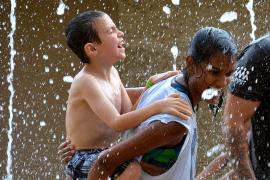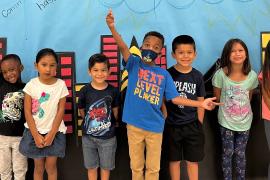In today’s world where diversity and multiculturalism are prevalent, creating inclusive environments is crucial.
This is especially important for places like summer camps, where people from different backgrounds come together to learn, develop, and connect. The camp movement has a long history of community building and personal growth, and it is now at a critical point where embracing multiculturalism is not just an option, but a necessity.
The five steps needed to create an inclusive environment that will advance the camp movement are:
- Embrace diversity
- Promote inclusivity
- Cultivate cultural awareness
- Empower diverse voices
- Foster cross-cultural connections
- Embrace Diversity
The foundation of a multicultural approach lies in acknowledging and celebrating the diversity within camp communities. Everyone brings a unique set of experiences, perspectives, and cultural backgrounds, enriching the collective tapestry of the camp environment. By embracing diversity, camps create opportunities for cross-cultural learning and understanding, fostering empathy and respect among campers and staff alike.
Promote Inclusivity
Inclusivity goes beyond mere tolerance; it requires actively creating spaces where every individual feels valued and respected. Camps must prioritize inclusivity in their policies, programming, and interactions, ensuring that all campers and staff have equal opportunities to participate and contribute. This may involve implementing anti-discrimination measures, offering accommodations for diverse needs, and providing cultural competency training for staff members.
Cultivate Cultural Awareness
Education plays a crucial role in promoting multiculturalism within the camp setting. Campers and staff should be encouraged to explore and learn about different cultures, traditions, and perspectives. This can be achieved through culturally themed activities, workshops, and discussions that facilitate intercultural exchange and promote mutual understanding. By fostering cultural awareness, camps empower individuals to navigate a diverse world with empathy and respect.
Empower Diverse Voices
Central to a multicultural approach is the recognition and amplification of diverse voices within the camp community. Campers and staff from marginalized backgrounds should be given platforms to share their stories, experiences, and perspectives. This may involve creating affinity groups, hosting diversity forums, and recruiting staff members from underrepresented communities. By amplifying diverse voices, camps not only validate the experiences of marginalized individuals, but also enrich the overall camp experience for everyone.
Foster Cross-cultural Connections
One of the most transformative aspects of the camp experience is the opportunity to form meaningful connections with others. Camps can facilitate cross-cultural connections by intentionally grouping campers from diverse backgrounds, promoting collaboration on projects and activities, and encouraging open dialogue across cultural divides. These connections not only break down stereotypes and barriers, but also lay the groundwork for lifelong friendships and global citizenship.
In today’s interconnected world, it’s essential for the camp movement to adapt and reflect the diversity of the communities it serves. A multicultural approach is not just about meeting quotas or ticking boxes. It’s about recognizing the value of every individual and creating spaces where everyone feels seen, heard, and respected. By embracing diversity, promoting inclusivity, and fostering cross-cultural connections, camps can become agents of positive change. This is not just about advancing the camp movement, but about advancing humanity forward together. Diversity is a team sport.
Jamal Stroud, PhD, is the mentoring and outreach manager for Camp HOPE America (camphopeamerica.org), a national program of the Alliance for HOPE International designed for children impacted by trauma and abuse. Jamal is also the founder of Big Homie Lil Homie (BHLH), a nonprofit mentoring program for young boys growing up without father figures. In addition to his professional and community work, Jamal is a motivational speaker on improving character and on strategies for prioritizing children and their overall success.




